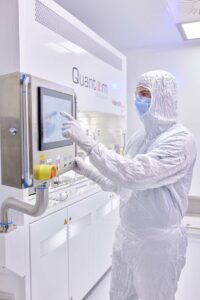mRNA vaccine technology has seen significant breakthroughs within the last decades, as recognized through the 2023 Nobel Prize in Physiology or Medicine. These scientific advances have enabled the fast response to the Covid-19 pandemic, with the first approved mRNA vaccines (Moderna and Pfizer/BioNTech) developed in record time after the genome sequencing of the SARS-CoV-2 virus and its spike protein. This has represented a milestone in medicinal sciences, and likely has unraveled new hopes and avenues in medicine using mRNA as a platform drug. This success also tantalized pharmaceutical companies to strengthen their investments in RNA technology for both prophylactic and therapeutic applications, several mRNA vaccines being currently in various stages of clinical trials for uses ranging from infectious diseases to (personalized) cancer therapies. This year, Moderna’s mResvia mRNA vaccine against respiratory syncytial virus (RSV) infection in older adults has been approved by both the FDA and European Commission.
One of the most salient advantages of mRNA-based drugs lies in the single, standardized, in vitro transcription (IVT) manufacturing process used to synthesize mRNA constructs from linearized DNA templates. This enzymatic process, most often mediated by a bacteriophage T7 RNA polymerase, is largely independent of the DNA sequence – allowing thus to rapidly access a wide range of synthetic mRNA and address various biological targets.
Yet, there remains a certain number of challenges ahead to realize the full potential of mRNA technology. Beyond mRNA sequence optimization, capping, purification and encapsulation – together with the evolving regulatory framework related to mRNA – stability issues (requiring for instance complex cold-chain logistics) and production costs constitute two priority incentives for the future to make the mRNA technology available to all.
In this direction, the development of intensified end-to-end processes for on-site on-demand production of mRNA drug products may be part of the answer. As such, Quantoom Biosciences has pioneered the development of such affordable and accessible production technology platforms for local, decentralized production of mRNA. Next to its modular Ntensify® mRNA solution, essentially based on (sequential-staggered) batch processes, Quantoom Biosciences actively investigates the implementation of continuous flow technologies to leverage the many benefits of this production mode in terms of process control, efficiency and scalability. In collaboration with Certech, a first microfluidic IVT reactor prototype confirmed the possibility to synthesize mRNA drug substances in continuous flow. Further work is ongoing to integrate the additional upstream steps in the continuous flow process.


